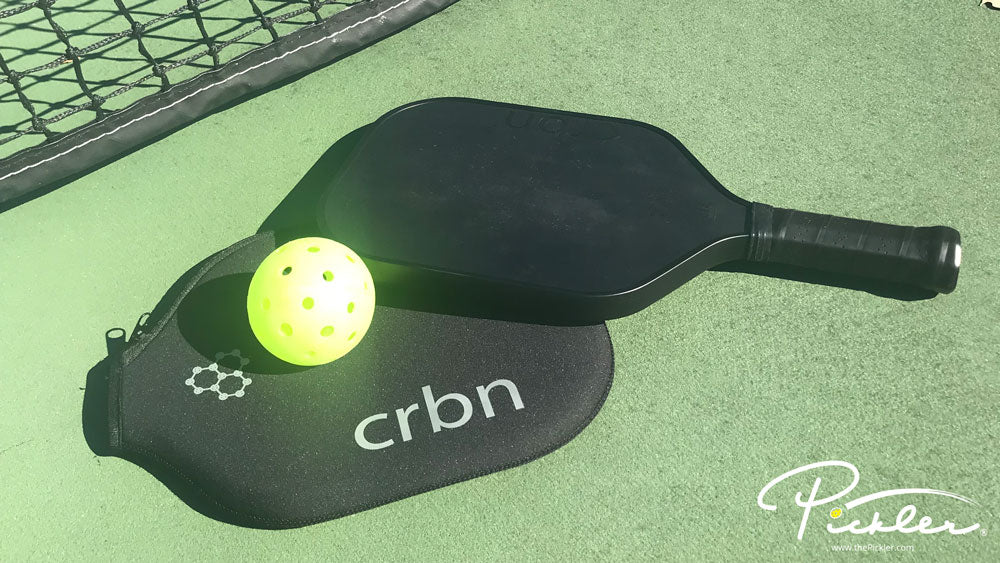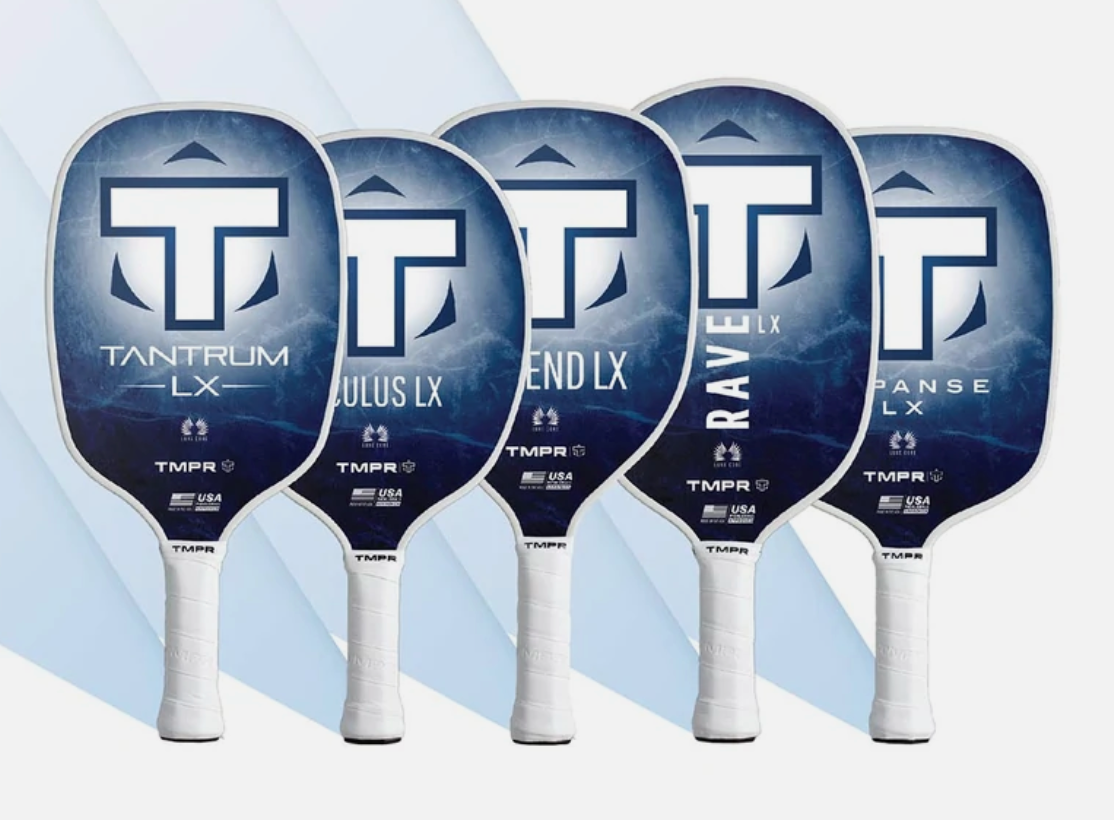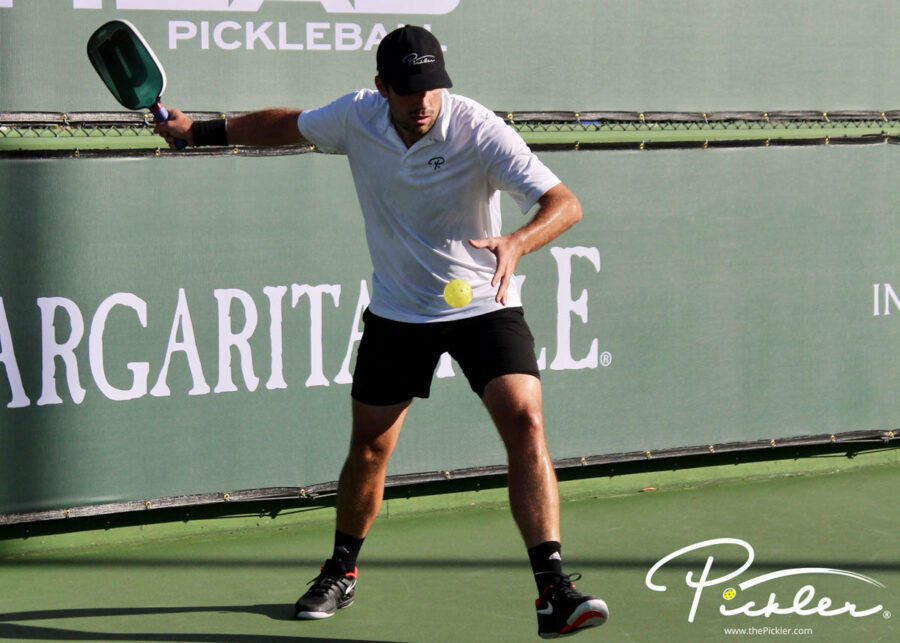To play pickleball, you only need a few pieces of equipment, which includes a pickleball paddle. There are thousands of pickleball paddles to choose from in the marketplace, which makes selecting a pickleball paddle a bit difficult. With that said, the overarching goal with choosing a pickleball paddle is to pick one that maximizes each player’s skill and results on the court—in other words, choosing a pickleball paddle that helps a player make better shots and win more games.
There are hundreds of paddle manufacturers working to help pickleball players achieve this goal of better play by producing the “best” pickleball paddle. Paddle manufacturers are pushing the boundaries of the rules of pickleball (which include rules on size, material, surface, alterations, etc.) in an effort to outpace the fast-growing competition in the pickleball paddle industry. They are looking to in-depth research and development to get an edge over their competitors, and find a marketing angle in order to explain to the pickleball population why their paddle is the best. Even a 1% improvement could result in a few extra shots and a few extra points, which could be the difference between a win and a loss on the pickleball court for those competitive players (particularly, any pro pickleball players—and we all want to play like the pros, right?).
Taking a look back at the original pickleball paddles, the first pickleball paddles were made from wood. It wasn’t until 1984 that pickleball paddles were made out of a composite material, which is almost 20 years after the sport originated. These early pickleball paddles historically had relatively square shapes that are solid (in other words, without any holes).
Pickleball paddles are evolving to be lighter, stronger, have a bigger sweet spot, have more “pop” and more spin, etc. One such evolution in the pickleball industry is a change in the shape of the paddle. Paddle manufacturers have expanded their product offering from the traditional wide-body shape (a squarish-shape paddle face) to add a shape that is slightly longer (a slightly more rectangular shape for the paddle face, so it gives the player more reach).
Other paddle manufacturers are continuing this trend of playing with shape by focusing on decreasing aerodynamic drag on their pickleball paddles. Drag is the aerodynamic force that opposes the swing of a paddle—in other words, the force that slows down the paddle swing. So, by decreasing the aerodynamic drag, pickleball players could swing faster and have faster hands—which is imperative when playing at the Kitchen line.
One of the paddle manufacturers on the forefront of shape is TMPR, which clearly states that it “utilize[s] the power of shape and its effects on paddle performance for increased response, less drag and less strenuous vibration.” Most of TMPR’s pickleball paddles have a rounded edge (rather than a traditional square or squarish edge) in order to accomplish this goal. TMPR plays with oval, teardrop, circular, and other non-traditional shapes in order to improve performance on the pickleball court. Other paddle manufacturers have followed this concept, too, including ProKennex (which has an oval-shaped paddle to help with “pickleball elbow”) and newcomer Joola (which recently launched a rounded top-edge on its new line of pickleball paddles to help improve aerodynamics on the pickleball court).
(Use code “PICKLER10” for $10 off at TMPR)
TMPR took inspiration from tennis-racquet designs, as most tennis racquets have more rounded edges. In fact, many of the pickleball paddle evolutionary steps have also occurred in the sport of tennis (for instance, the transition from wood to composite racquets, changes in shape, etc.), so as an older sport with more history, tennis is a good place for pickleball to look for innovation (as are other sports). In fact, there is another evolution in the pickleball paddle design that seems to be inspired by changes in tennis racquets over the years, which is open space in the structure of the tennis racquet—in other words, open-throat tennis racquets. From this concept, we are now seeing holes—yes, intentional holes—being placed in the face of pickleball paddles.
Selkirk notably released the highest priced pickleball paddle at $333, which features an open throat. This pickleball paddle—called Project 002—is the first of its kind with a hole in the throat of the pickleball paddle.
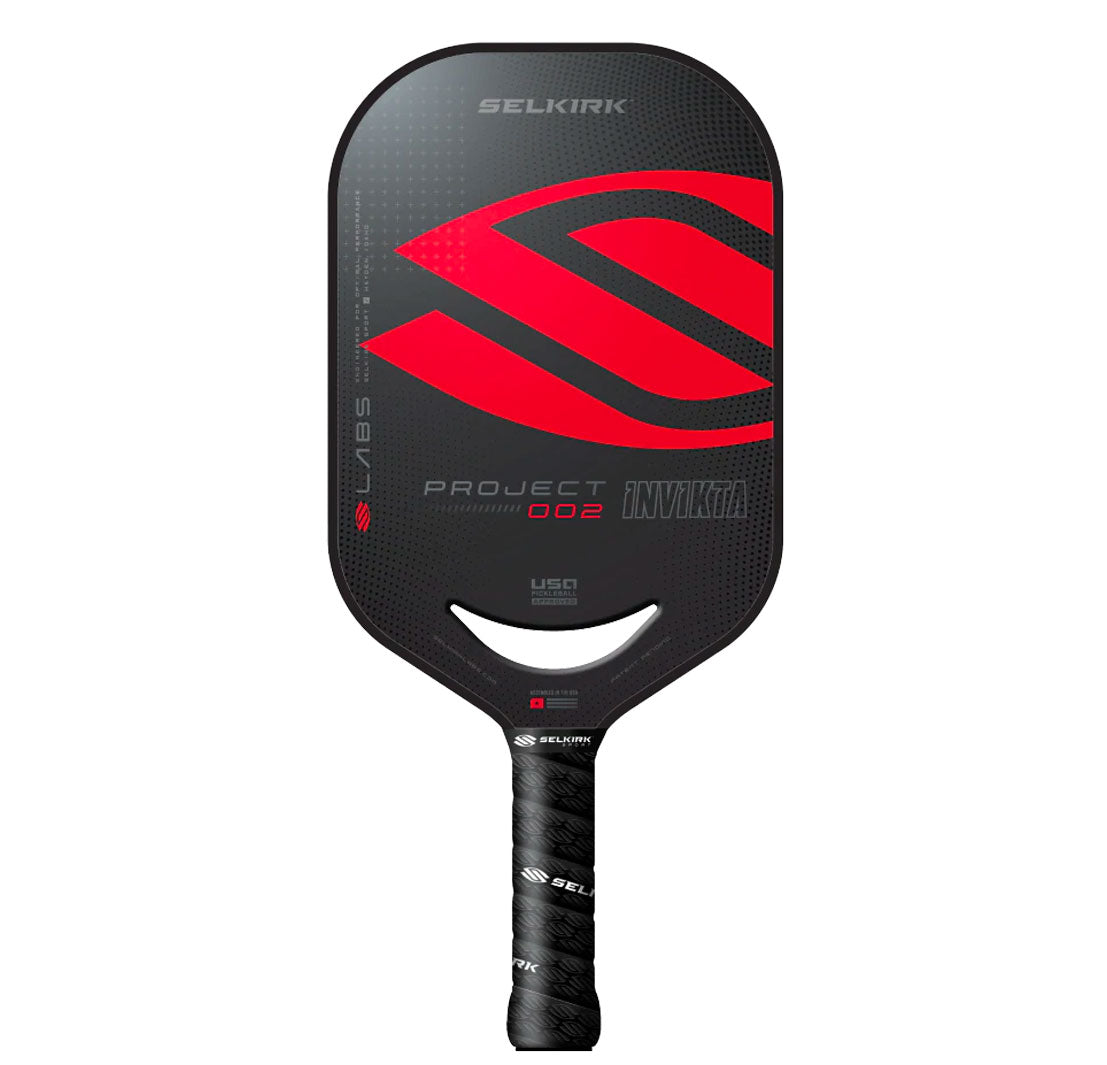
Another paddle manufacturer—OneShot Pickleball—also released a pickleball paddle with eight half-circle holes on the edges of the pickleball paddle surface. Both of these designs have the purpose of decreasing aerodynamic drag.
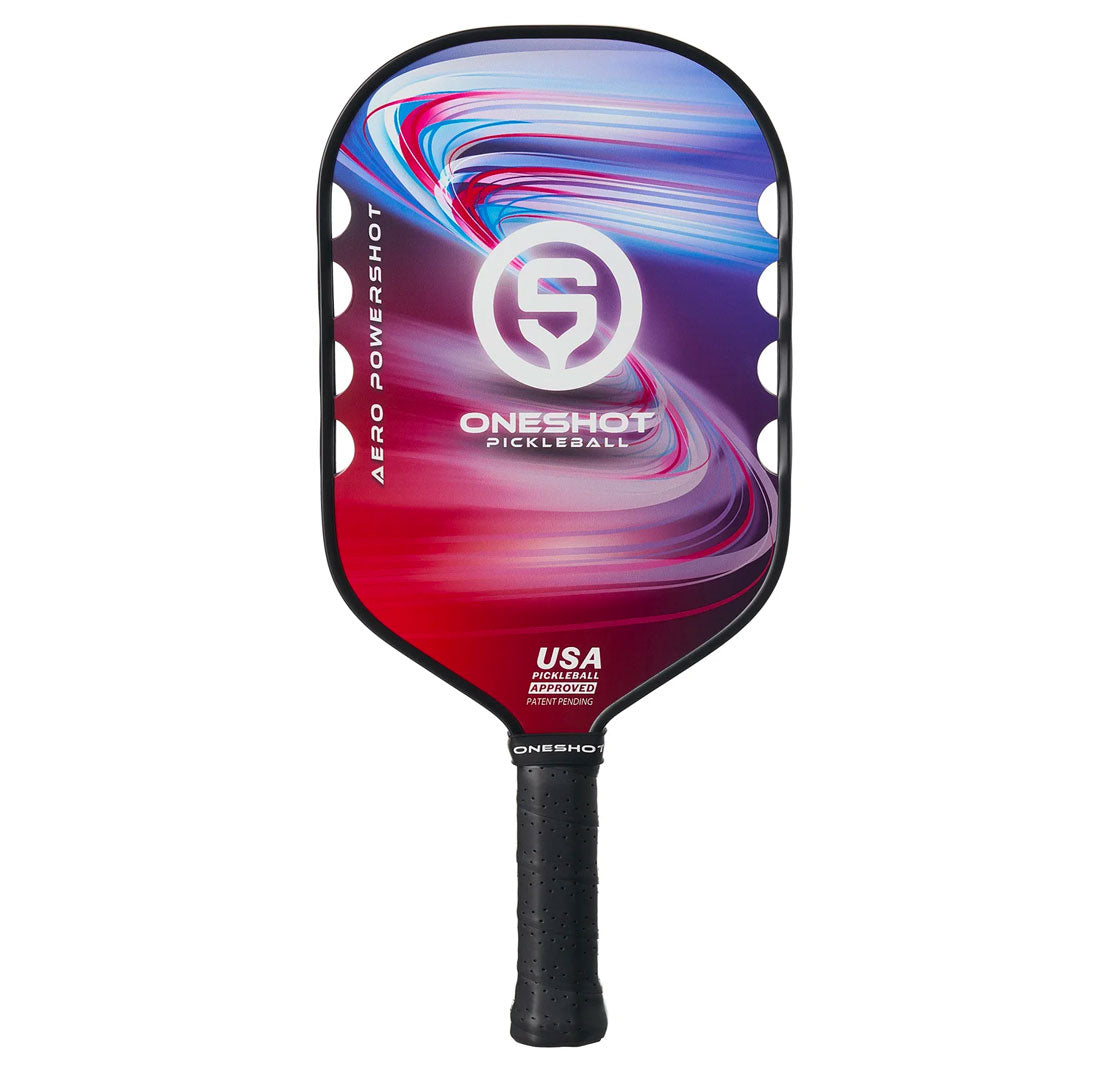
Other paddle manufacturers (like CRBN, Electrum, and Joola) have focused on the power of spin on the pickleball court, and have pushed the bounds of the rules on surface roughness in order to get more spin. USA Pickleball is in the position to police these innovations and make sure each paddle plays within the confines of the rules (in order to protect the growth and integrity of the sport). In recent days, these paddle manufacturers have even been called into question for breaking the rules, and USA Pickleball even went so far as to remove the CRBN paddle as an approved paddle during the US Open Pickleball Championships because of manufacturing drift related to the surface roughness (in other words, the surface roughness fell outside of permitted rules in manufacturing runs after CRBN was initially approved, so USA Pickleball removed its approval status and the CRBN paddle is no longer permitted in sanctioned tournaments (including any PPA tournaments)). Other paddle manufacturers (like Joola) are being questioned for their compliance with paddle standards, so more re-tests, like the one with CRBN, are likely for more paddle manufacturers. The takeaway for USA Pickleball is that it may need to improve and elevate its manufacturing standards and testing to keep up with this improving technology from paddle manufacturers.
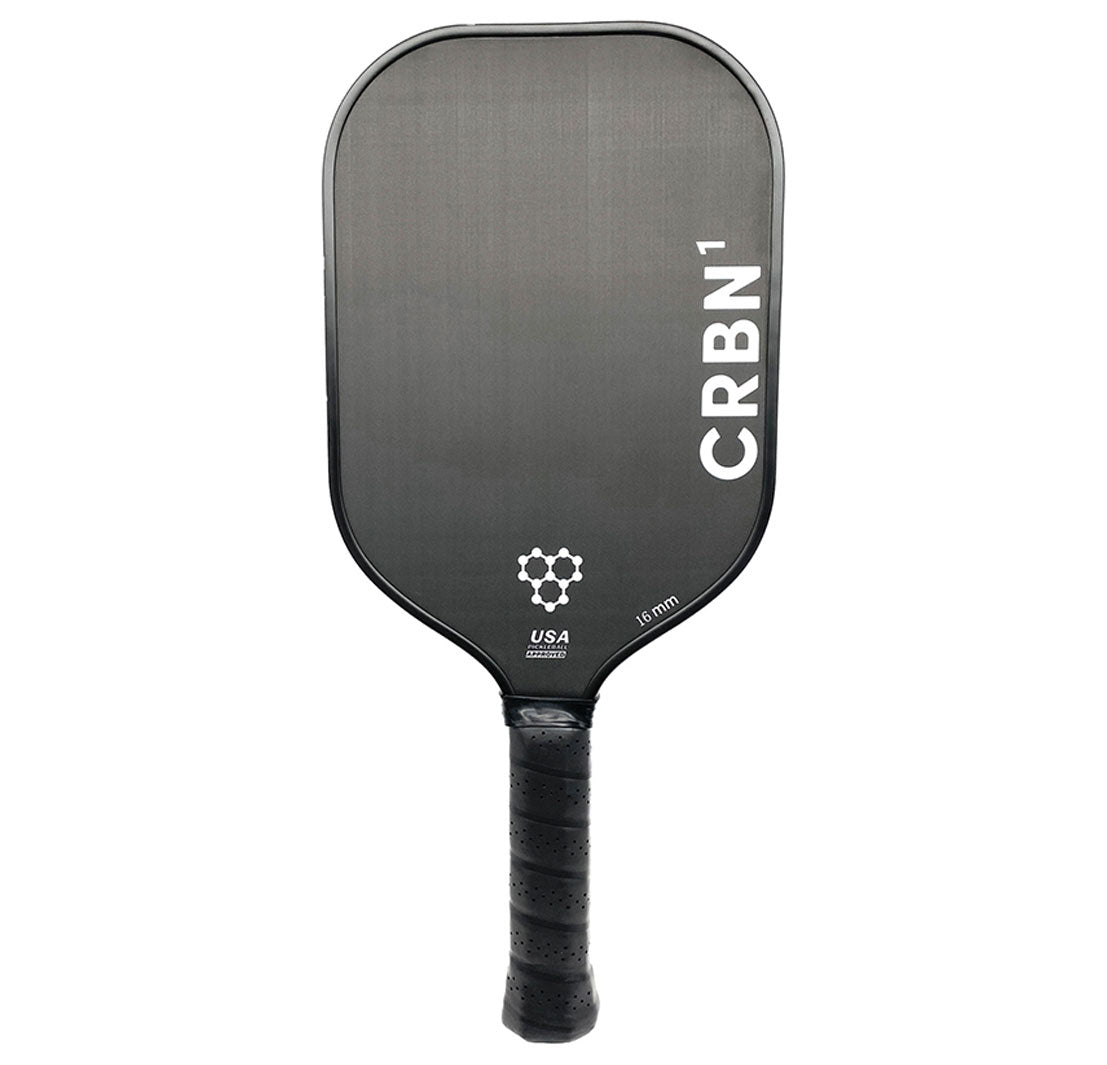
Pickleball paddle manufacturers will continue to look for ways to improve pickleball paddles and their performance on the court, like TMPR, Selkirk, CRBN and others. For instance, paddle manufacturers will look to find better cores for more power and control, better skins or surfaces with more grit for spin (i.e., the recent news with CRBN and Joola), different shapes or structures (like intentional holes) for less drag and faster hands, how to create a paddle with a bigger sweet spot, etc. Any improvement by the smallest percentage can lead to an advantage on the court, as the margins for victory on the court can be small (notably, at the professional levels).
However, for most of us, the paddle may not make a difference (the 1% or so advantage may not matter). As they say, the paddle does not make the player. Rather, the player makes the paddle.
Does your pickleball paddle affect your game? Do you have an idea on how to improve the development and performance of pickleball paddles? Share with us at stacie@thepickler.com!
And, for 10% off your next pickleball paddle, use the code “10PICKLER” at Fromuth Pickleball!

